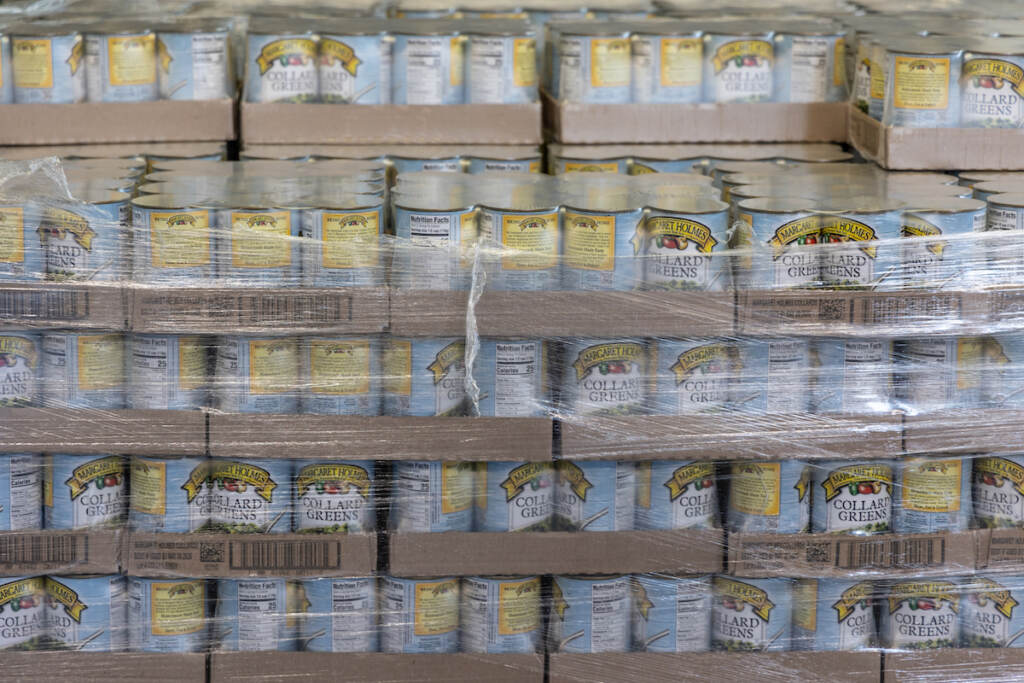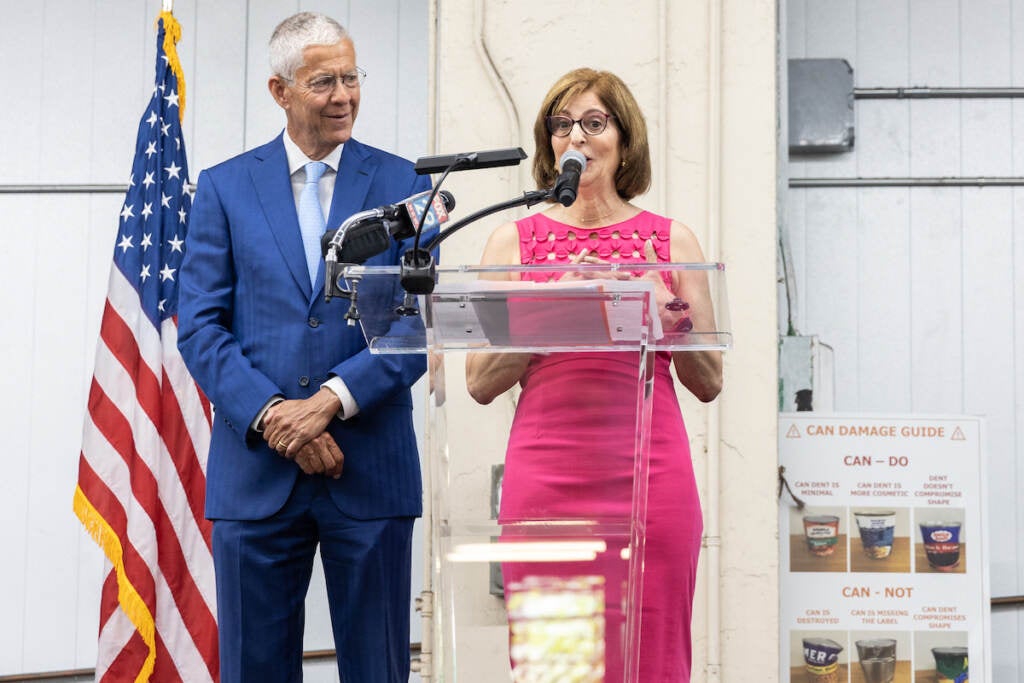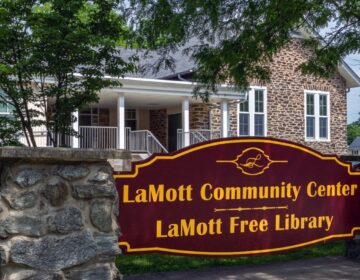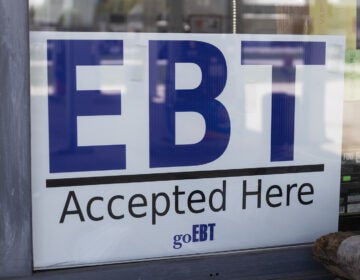Philly’s Share Food Program is launching an ambitious campaign to combat the city’s hunger crisis
The nonprofit plans to renovate its headquarters that sits inside a 100-year old factory into a state-of-the-art food distribution center to deliver food to more people.

Pa. Governor Josh Shapiro praises the Share Food Program at the launch of the Campaign for Food Justice on June 1, 2023. (Kimberly Paynter/WHYY)
One of Philadelphia’s most prominent food banks is on the verge of achieving the city’s largest hunger relief effort by a nonprofit in recent years.
On Thursday, the Share Food Program announced it has already raised $28 million toward its “Campaign for Food Justice” project — an initiative promising big changes for the organization. Its goal is to raise $35 million.
The nonprofit will use a majority of the funds to revamp its food distribution warehouse on West Hunting Park Ave in North Philadelphia.

“Big programs call for big measures,” said Share Food Program board member and fundraising campaign co-chair Gregory Allen. “The lack of access to food is a big problem. And we need to tackle this issue thoughtfully and consistently.”
In 1986, the Share Food Program started as a low-cost food co-op, earning its 501(c)(3) status in 1991. Since then, the organization has been headquartered at a century-old building which was formerly a ball bearings factory.
Share Food Program is currently renovating two other satellite warehouses in Montgomery and Delaware counties, but executive director George Matysik says creating a state-of-the-art facility at its North Philly location will increase the organization’s capacity to deliver more food — a need that increased during the pandemic.
“We were serving close to a million people per month,” he said, “And now we’re starting to see those numbers pick back up again. So we’re up back in the hundreds of thousands of people a month that we’re serving and we’re doing it out of this old ball bearings factory.”
The Share Food Program distributes meals for up to 700,000 Philadelphians per month, including more than 305,000 children across 800 area schools through the National Food Lunch Program. It delivers up to 4,500 meals a month to people’s homes through a DoorDash partnership.
Maytsik said that despite the incredible work of staff and volunteers over the years, he’s amazed it could be done out of what he called a “busted down” factory.
He said the building’s current infrastructure is severely outdated, and the organization recognized that a higher demand in food distribution, along with the facility’s dilapidated conditions, would hinder its ability to expand services. Renovating packing areas and expanding office space are priorities, but not the only ones.
“We need more cold storage, we need more storage space, we need more areas where our employees can work out of,” Maytsik said.”And in order to do that, we need to be able to redevelop the entirety of the 30,000-square-foot warehouse.”
So far, the nonprofit has received several grants and large charitable donations, including a $5 million grant from the William Penn Foundation, and recently, a $10 million gift from the organization’s board chair, Tracey Specter, and her husband, Shanin Specter.

The two spoke at Thursday’s event to announce their contribution.
“Proper nutrition is medicine for the body and mind,” said Tracey Specter. “My hope is that our gift will inspire others to give, to share.”
Tracey said renovating the North Philadelphia building will “mean a lot.”
“We’ll be able to provide nutritious food to more individuals, more families and more seniors will be able to deliver healthier foods for both breakfast and lunch to the area schoolchildren that we serve. And it will help us to renovate our warehouse here and upgrade our logistical systems to provide a safer, healthier, and more innovative space for our SHARE employees,” she said.
Shanin Specter said that solving food insecurity across the Philadelphia region is a solvable problem.
“It’s a problem that can be solved with money,” he said. “We can make it such that we’re not the hungriest city in America. We are the least hungry city in America.”
Gov. Josh Shapiro, who was also in attendance, said his administration is committed to fighting food insecurity.

“Hunger too often times lives in the shadows, affecting 1.2 million Pennsylvanians every single day from Philly all the way to Erie,” he said. “Three-hundred twenty-five-thousand of those over 1 million people who are hungry are children.”
Shapiro spoke to the economic hardship that thousands of families face in order to move past food insecurity.
“Many families live in this horrible gray zone. They make just a little too much to qualify for SNAP and other federal programs, but not enough to actually put a full quality, nutritious meal on the table every day,” he said.
In 2020, according to Philabundance, 15.8% of Philadelphians lived with “food insecurity” and 30.8% were children. And 60 million people — roughly 1 in 5 Americans — turned to emergency food relief during the COVID-19 pandemic, according to Feeding America.

Get daily updates from WHYY News!
WHYY is your source for fact-based, in-depth journalism and information. As a nonprofit organization, we rely on financial support from readers like you. Please give today.






